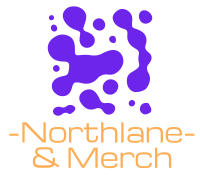How Different Healthcare Screening Solutions Can Benefit You
Medication safety screening, Medication decision support, Employee health screening, and Visitor health screening are a few of the many services offered by different healthcare-screening solutions. While the first generation of solutions only provides essential screening, they do not connect to patient data or provide key workflow alerts. Second-generation solutions add patient data and moderate drug information granularity. Finally, third-generation solutions include more sophisticated data and capabilities. Read on to discover the healthcare industry’s leading background screening and credentialing firms and how different healthcare screening solutions can benefit you.
Medication safety screening
Medication safety screening is a critical component of the safe management of medicines. ADEs and medication errors in hospitals affect eight to 12% of hospitalizations. There is a high probability that 50% to 70% of serious harm from medication errors can be prevented with comprehensive systemic approaches. As patients’ comorbidities and treatment regimens become more complex, screening solutions must be able to meet the needs of the whole patient population.
The use of medications is the single most common intervention in health care. The medication management process represents a significant source of risk for hospitalized patients. Despite this, no widely accepted method of medication safety assessment has been developed. While different groups have suggested other metrics to measure medication safety, most studies identify errors in the process as a primary cause of adverse drug events. A new approach to measuring medication safety should focus on preventing adverse events and medical errors.
Medication decision support
Medication decision support systems are software tools that allow physicians to make decisions based on patient information. They can be standalone tools or part of a more extensive infrastructure. Some focus on a single problem and perform essential functions, while others cover many processes. Some are designed to make decisions based on medical guidelines, while others use more advanced algorithms. Here are some of the main advantages of CDSSs. This article discusses some of these features and how they can improve patient care and practitioner performance.
Micromedex Clinical Knowledge by IBM Watson Health is an evidence-based clinical decision support tool used in over four hundred hospitals worldwide. The platform can integrate with the most commonly used EMR and CPOE systems. It features a drug dosage calculator and makes recommendations for herbal therapies. It can also identify patients with sepsis, an illness that affects the respiratory system and can be fatal. By analyzing patient data, doctors can make informed decisions and save lives.
Employee health screening
Before contracting with a healthcare screening provider, you should establish how you will share the information you receive. You must share limited information with the provider to manage human resources processes, remote work policies, and return to work protocols. Consider using a biometric measurement device to capture the results of the screening. This will minimize the risk of exposing yourself to health-related information. Different healthcare solutions for employee health screening differ based on the method of recording the results.
While health screening can reduce the risk of noncommunicable diseases and other untoward events, it is most effective when combined with disease management and wellness programming. In addition, you must comply with all relevant laws, maintain the confidentiality of employee information, and evaluate different delivery models to ensure that they provide the highest quality of service. It would be best if you also assessed whether the healthcare screening solution meets your company’s privacy and data security needs.
Visitor health screening
Visitor health screening is key to preventing infection in a healthcare setting. Before allowing anyone to enter a healthcare facility, health screeners must ensure the person is fully vaccinated and has completed a health declaration form. It is also essential to perform a temperature check, usually done by a health screener. When the temperature is less than 100.4, it is not considered a fever and will result in a message allowing the person to enter the facility.
The Coronavirus Health Screening solution is another option available. The Coronavirus Health Screening solution enables companies to screen visitors and employees for the disease, and it requires self-reporting symptoms. It also allows businesses to record temperature checks and track people entering the facility. A Coronavirus Health Screening solution can be used for business and government establishments. You may choose a different solution depending on your business or organization’s needs.
Coronavirus Health Screening
The recent Coronavirus outbreak has greatly affected many organizations’ workforce. As a result, these organizations have taken several steps to protect their employees and the public. For example, many have begun checking the temperature of the building before allowing visitors inside. By implementing a Coronavirus Health Screening program, you can ensure that you are doing all necessary to protect your employees and visitors. However, you may wonder how to implement this program in your workplace.
The CDC reports that nearly half of elementary school leaders did not receive training on coronavirus health screening. Almost half of these leaders still performed temperature checks, despite the fact that health experts have largely de-emphasized the practice. Meanwhile, 78 percent of elementary school leaders used at-home symptom screening, allowing parents to review the symptoms and identify potential exposure.



